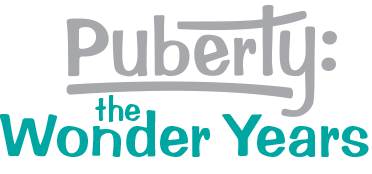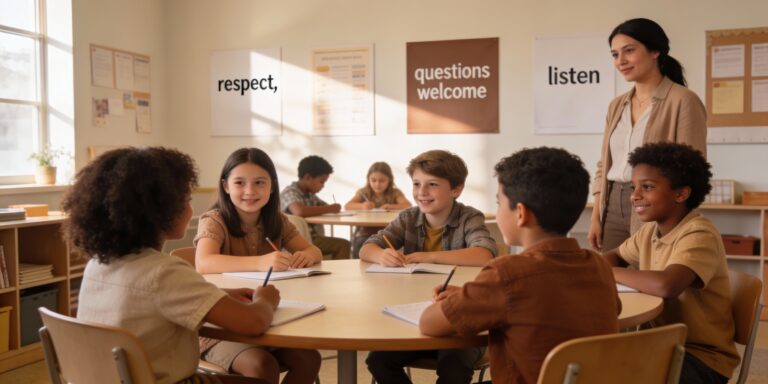Sexual Health
According to the World Health Organization (WHO), “Sexual health is a state of physical, emotional, mental and social well-being in relation to sexuality; it is not merely the absence of disease, dysfunction or infirmity.” This means that puberty education in Canada must include multiple facets, not just physical changes.
Puberty education is a subset of the larger topic of sex education which is often called sexual health education in Canadian schools. Puberty education focuses on the developmental stages that happen as children begin puberty, most often in grades 4 to 7.
Support for Puberty Education
A large majority (87%) of Ontario parents strongly agreed or agreed that sexual health education (SHE) should be provided in school. More than a third of parents responded that SHE should begin elementary school, and 84% believed that SHE should start by middle school (grades 6-8). (2014 study) Sex education during elementary and early middle school is often called puberty education because it prepares young people for all the changes they will experience on their path to adulthood.
According to the Canadian Guidelines for Sexual Health Education, youth in Canada identify the enhancement of sexual health and wellbeing as an important component of their sexual health education, but report that these topics receive less emphasis than others. Youth value and want to learn about sexual health enhancement:
- healthy relationships
- communication skill
- pleasure
Yet, the primary focus of sex education in Canadian schools has been on preventing negative outcomes. Content related to enhancing sexual health and well-being often receives less emphasis while the following biological aspects of sexuality receive the most emphasis in their sexual health education.
- reproduction
- puberty
- STI prevention
- unintended pregnancy
Sex Education in Canadian Schools
Sex education is subject to jurisdiction by each of the 10 provinces and three territories in Canada, creating a patchwork quilt of laws related to how sex education is taught. Additionally, each school can decide what and how to teach sex education as long as they meet the legal requirements. This results in great variation from school to school across the country. The following is a sampling of the standards:
- Ontario Health and Physical Education Standards, grades 1-8 (Click here)
- British Columbia Physical and Health Education (Click here)
- Quebec Sexuality Education (Click here)
For more information…
…about teaching sex education in Canadian schools, hopefully including puberty education, check out these resources:
- Canadian Guidelines for Sexual Health Education, 2019, Sex Information and Education Council of Canada (SIECCAN)
- The State of Sex Ed in Canada, Action Canada for Sexual Health & Rights
- Sex Education in BC’s Schools: An Explainer
- Promising Practices Portal, Provincial/Territorial Resources, SIECCAN
- Sexual knowledge of Canadian adolescents after completion of high school sexual education requirements, Paediatr Child Health
- Let’s talk about sexual health education: Youth perspectives on their learning experiences in Canada, Canadian Journal of Human Sexuality
Updated 2023-10-8



